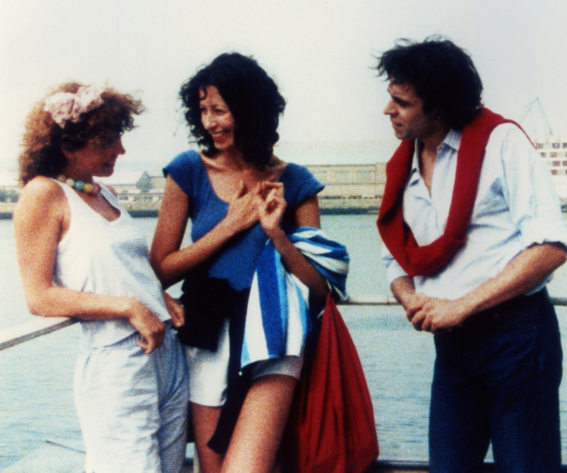I’ve been meaning to check out films from Éric Rohmer for a while now and finally had the privilege to sit down and view his most popular film—at least on Letterboxd—’The Green Ray‘. It mesmerized me in many ways, particularly its ability to paint the portrait of anxiety and panic episodes so well. For some background information, Rohmer was a prominent French filmmaker and one of the key figures of the French New Wave movement. His films are known for their contemplative and dialogue-driven nature, often focusing on their characters’ emotional and intellectual dilemmas. His works explore themes such as love, morality, identity, and the human condition, often set in picturesque locations such as the French countryside or seaside. In addition to his work in film, Rohmer also published several books and essays on film criticism and philosophy.
❝A symbol of hope, representing the possibility of finding true love and happiness.❞
This film, ‘The Green Ray’, came out in the middle of Rohmer’s career and is named after the optical phenomenon that occurs just as the sun sets on a clear day—when a green flash briefly appears on the horizon. In the film, the green ray is portrayed as a symbol of hope, representing the possibility of finding true love and happiness.
Rohmer worked with his longtime collaborator, cinematographer Sophie Maintigneux, to create a visual style that captures the beauty and intimacy of the story. I particularly enjoyed its use of natural light. As with most of Rhomer’s films, it was shot almost entirely on location, with many scenes taking place outdoors or in natural settings such as the beach or countryside. Nevertheless, ‘The Green Ray’ tells the story of a young woman named Delphine (Marie Rivière), who is trying to find meaning in her life after a breakup. She embarks on a solo vacation to various seaside locations, hoping to find the happiness and fulfillment she’s been searching for.
Delphine is an anxiety-ridden character who has trouble making up her mind, feeling comfortable, and generally living day-to-day life without feeling like everything is about to go wrong. She’s very reflective, sensitive, and deeply affected by the people and places she encounters. Delphine’s emotional vulnerability makes her very relatable and likable as a protagonist. Although you might think she’s in her current state because of her recent breakup, it’s easy to understand that she’s always been searching for a sense of purpose and meaning. This vulnerability is reflected in her interactions with others, marked by openness and honesty.
Generally, many characters that follow this character trope are timid or awkward. In this case, Delphine isn’t afraid to express her emotions and is willing to engage in frank discussions about love, relationships, and the nature of happiness. A great example comes during the film’s first act when Delphine expresses why she’s a vegetarian to a group she’s eating with. Delphine’s introspection gets the best of her, usually to the point of being self-critical and sometimes causing indecisiveness and hesitancy. For example, later in the film, Delphine meets a woman on vacation alone. The two seem to hit it off as friends, but Delphine flees out of anger when the woman is interested in two men.
Throughout this journey, Delphine is searching for something—love, purpose, or happiness—and this quest drives much of the narrative. Her journey takes her to various locations, each offering a different perspective on life and love. Delphine can gain new insights and understand herself and the world through encounters with others. Eventually, Delphine meets a man named Pierre (Vincent Gauthier), with whom she experiences an emotional connection, culminating in the much-anticipated sighting of the green ray.
❝One of Rohmer’s most poetic and romantic films.❞
‘The Green Ray’ is often seen as one of Rohmer’s most poetic and romantic films, exploring themes of self-discovery, human connection, and the search for meaning in life. The film has been praised for its naturalistic style, subtle performances, beautiful cinematography, and exploration of human relationships’ emotional and psychological complexities.
To me, the film is about self-discovery and how interactions offer insights into the human condition and the complexities of love and relationships. We learn from what’s around us, or at least we should try to.










Leave a reply